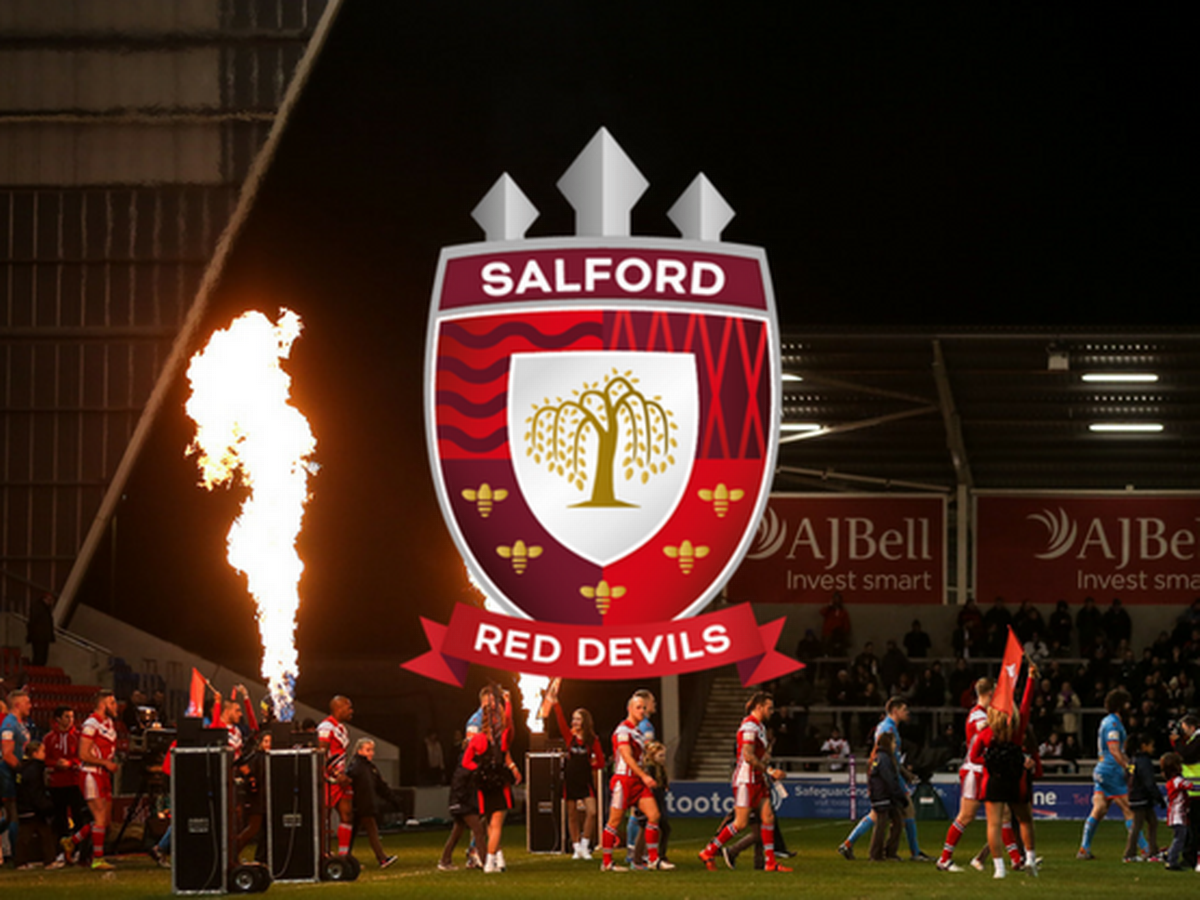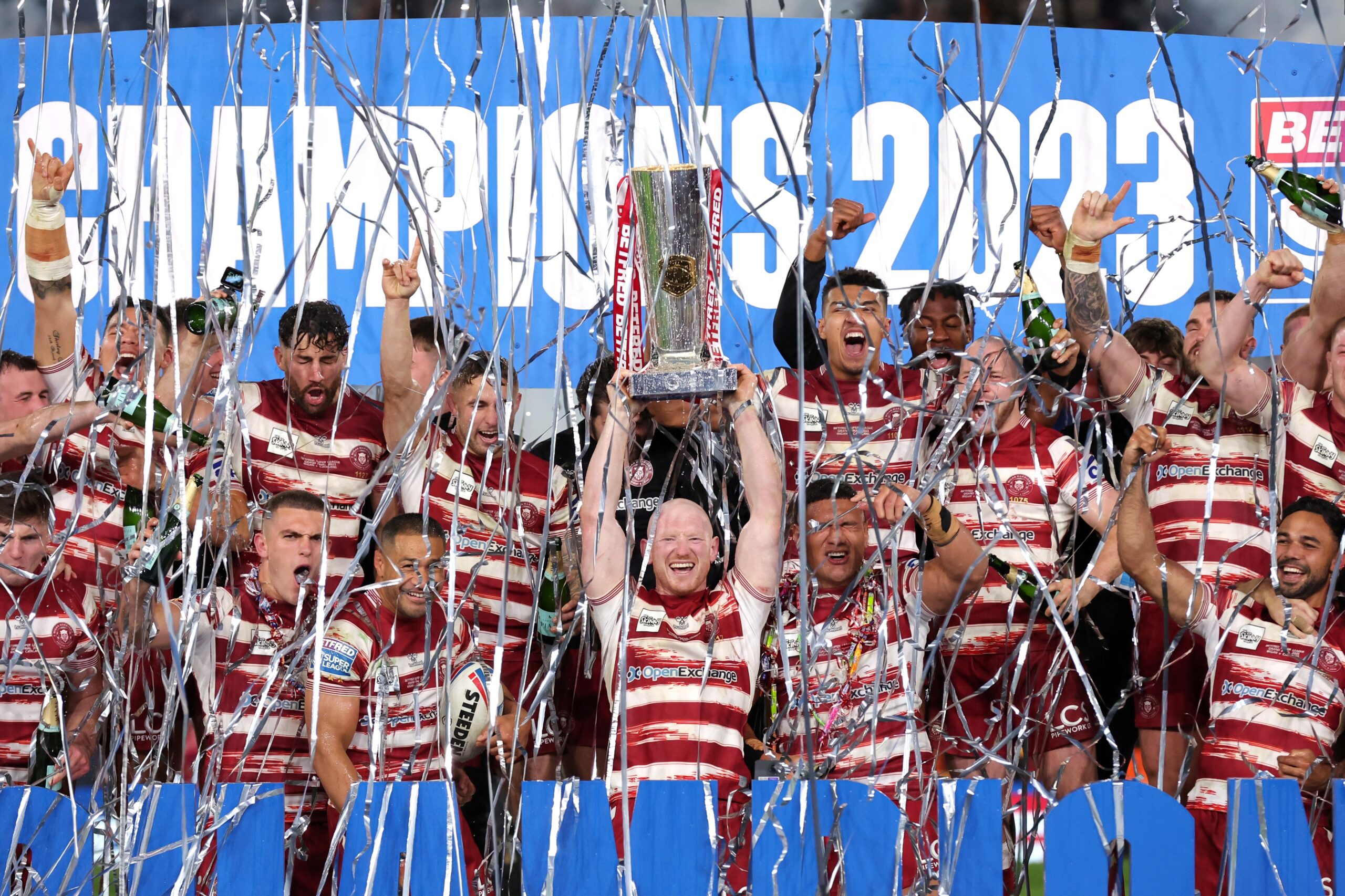Recently Warrington Wolves coach Tony Smith told the media that the game administrators needed to look at ways to create more buzz around the sport and compared it, strangely, to Darts.
Yes, Darts.
He also talked about the need to make decisions that would probably upset some of the big power brokers in the game, but mentioned that the short term pain would result in long term gain for Rugby League in Great Britain.
It is clear that slowly but surely, we are seeing a shift in attitudes in Rugby League’s halls of power. More and more club owners are starting to push for change in very public ways. Players and coaches are talking about rationalization and yet the need for national relevance is started to become an issue for a sport that is finally working out that is confined geographic footprint is costing the game money in a huge way.
When it comes down to it the needs of Rugby League in Great Britain right now are pulling it in tow different directions.
There is the need to cut Super League down from 14 teams to at least 12, if not 10. At the same time there is the need to expand the competition into bigger media markets.
There is a need to to cut back the salary cap to a sustainable level and yet we need to pay players more money so that Super League is a viable career option.
There is a need to develop international football and yet clubs need to play as many games as possible to generate income.
At some point someone needs to step into a leadership role at the Rugby Football League and choose a path for the game to go down, because we simply can not have it both ways.
Right now we have a lot of people pushing for Promotion and Relegation to come back. These people are completely and utterly insane!
Take one look at Widnes right now, who were given many months more than any Promoted team would be given to step up to Super League level. Widnes simply are not up to being in Super League. They are not even close. At best they are years away from being competitive at all.
Surely Widnes is the best example of why Promotion and Relegation doesn’t work.
If we have Promotion and Relegation in play right now, Widnes would have spend so much money to try and become a competitive Super League team, they would be heading straight back down at the end of this season, that would see them lose players, coaches and sponsors, and they would be Relegated in a worse position than what they were Promoted in.
That would happen to the next team, and the next team, and the next team.
So Promotion and Relegation is not the way to go. It doesn’t work.
I wonder if what we need are two tiers of Super League. You have a 10 team Super League A league and a 10 team Super League B league. Obviously you’d come up with better names than A and B, but for this, lets just stick with them to keep it simple.
Super League A teams would play to the current salary cap levels. Super League B teams would play to a lower cap level would would be much more sustainable for teams in that competition.
Super League A teams would play each other twice, home and away, and then play each team in Super League B once. Super League B teams would play everyone in their own league twice, home and away, and then the big boys in Super League A once.
That gives you a 28 game club season for all Super League A and B teams.
I would make Super League B end one week earlier than Super League A. I would then have the two 4 teams from Super League B play off….giving you two teams that would advance to the overall playoffs.
The top 4 Super League A teams would then be joined by the 2 advancing Super League B teams and they would play a 6 team playoff series to find out who our Grand Final winners are.
Why use this system?
First of all, this keeps Super League B very relevant to the overall top level of competition. They will be able to attract players, coaches and sponsors a lot easier because they can guarantee 10 games every year against Super League A competition, they can possibly be involved in the overall playoffs, hell, if they are good enough they could win the Grand Final!
Super League A teams get to offer fans, sponsors and broadcaster more high intensity games while maintaining the current salary cap level. They can offer 10 games against lower intencity competition, which I think will generate some interest, but they also are assured that 40% of teams get a start in the overall playoffs, and that is a pretty good number.
My biggest worry about this system is its effect on the Challenge Cup. With Super League A teams regularly playing Super League B teams, the “magic” of the Challenge Cup becomes something we would see on a regular basis. Not so magic any more.
When it comes to the Challenge Cup I would remove the random element of the draw from it. I would have a set, bracket style schedule so that every team knows exactly who they will possibly be playing a head of time, who they will have to beat and who they may face if they make the final.
This would allow clubs and their fans to plan out in advance when to buy tickets, and dare I say it, book stadiums.
So what have we done so far?
We have allowed teams to play at levels that are more financial sustainable to them. We have managed to keep the second tier of the game completely relevant to the top tier and maintained their exposure to the highest levels of the game.
We have added a little bit of extra intrigue to the playoff series and we have planned the Challenge Cup ahead of time.
I can’t see any reason why all of that wouldn’t work!
Now….here is where we look ahead a little and take this concept towards expanding the games national footprint….
Super League B is the perfect place to bring in teams in “expansion” area’s. If you think of teams from the past like Gateshead or Wrexham, chances are they would still be with us at the “Super League” level if they were brought in at a Super League B level, with lower salary cap demands and more realistic expectations in terms of player strength.
With some forward thinking, good planning and the right investment, Super League B could end up being the savior of the game. It could be the nationalized competition that actually drives, not only its own commercial success, but the success of Super League A team as well.
Super League needs more teams based in large media markets. It needs to have a true national footprint so that it can go to broadcasters and offer them relevant content across Great Britain, and then take that better coverage and go to sponsor to show them that they are buying into a competition that isn’t just based in a few small towns in Northern England.
You could look to bring teams into Super League B from Wales, Ireland, Scotland and France. Imagine one day being able to have the London Broncos from Super League A playing a live league match against the London Skolars from Super League B. Tell me that clash wouldn’t help both sides and develop the culture of Rugby League in London.
The lower demands of Super League B would allow so much more freedom to expand the game.
Add all of the above along side a true cut back on imports (Three non GB/French born players per club) and I think Super League starts to look pretty interesting.
It stands out from other competitions. Its different. It has looked at some of the issues it faces, and it has fixed them in a unique way.
That at the end of the day is the real issue with Rugby League in Great Britain. The problems it faces can not be fixed with closed thinking and burying its head in the sand. There needs to be an honest assessment of where the game stands.
Right now, the game is in a dire financial position. It is not competitive. It is not offering a product that is comparable to any of the world class alternatives on offer elsewhere. On top of all of that, it is trying to sell a competition mostly based in tiny little towns in Northern England.
If you can reign in spending to affordable levels, bring back back exciting competition, give people a product that is unique and different from anything else in Great Britain and on top of all that, offer new markets to broadcasters and sponsors…..you’re taking a step in the right direction at least.
The alternative is to make no changes. Just stay the course. Do nothing and wonder why things are getting worse. Wait for someone else to step in and fix things.
If that attitude continues to win out at the Rugby Football League over the calls for change, then you can forget about Rugby League in Great Britain over the long term.










